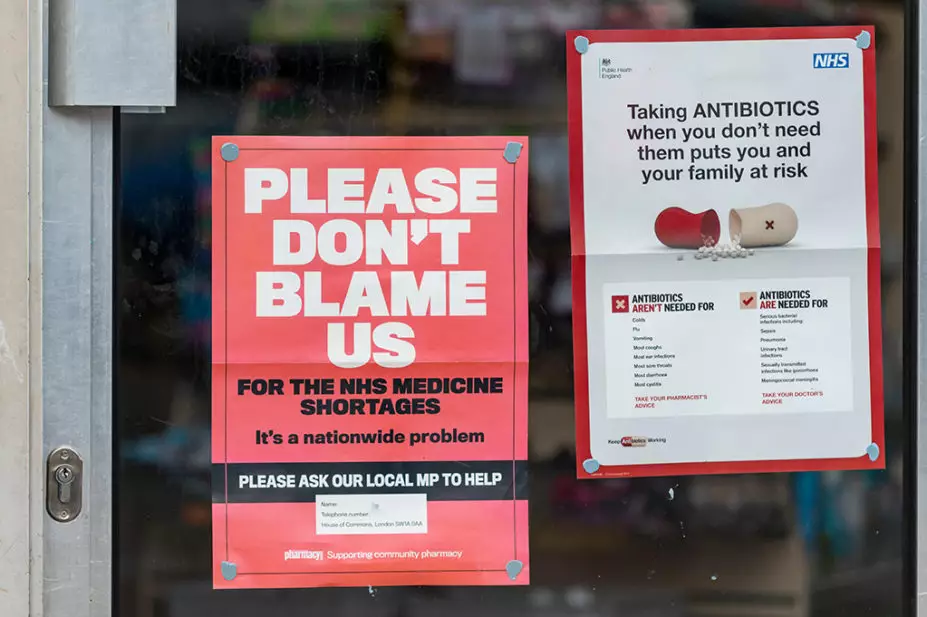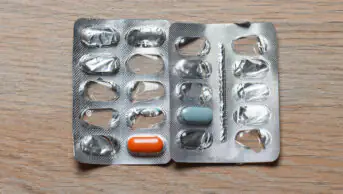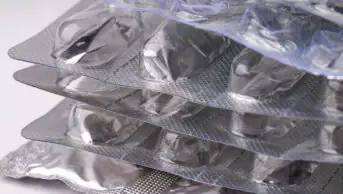
Avpics / Alamy Stock Photo
Amid the the worst crisis in medicines supply “in 36 years”, community pharmacists have reported severe shortages of cold and flu medicines.
In December 2022, the government agreed to 198 product price concessions — the highest on UK record — in an indication of severe medicines shortages and increased supply prices across the UK.
This exceeds the 159 products that were listed in September 2022 — the previous record.
Price concessions are granted for generic medicines when pharmacists are unable to source them at the price listed in the Drug Tariff. If a price concession is in place, the pharmacy contractors will be reimbursed at the concessionary price rather than the Drug Tariff’s listed price.
The list now includes many common products, with recent additions including gabapentin, levetiracetam, mebeverine and nitrofurantoin.
Antibiotic shortages also continue, while community pharmacists have reported that they are experiencing shortages of over-the-counter (OTC) cold and flu medicines, as influenza rates soar.
Raj Matharu, chief officer for south London local pharmaceutical committees, covering Southwark, Lewisham, Lambeth, Bromley, Bexley and Greenwich, told The Pharmaceutical Journal on 4 January 2022 that the supply crisis was the worst he had experienced in his 36 years as a pharmacist.
“I have never come across such a supply crisis since I qualified in 1986 — it is that bad.”
He said he was “simply unable” to get hold of any liquid antibiotics at all, adding: “Antibiotics are still an issue, but community pharmacists cannot obtain supplies of OTC cough and cold products. Walk into any pharmacy and you will see empty shelves.”
Nat Mitchell, a pharmacist at Allison’s Chemist in Cockermouth, Cumbria, said he had experienced “massive issues with many lines”, adding that all types of antibiotics, clonidine, paracetamol suspensions, clotrimazole and zopiclone had been causing the “biggest issues”.
Miqdad Master, a pharmacist at Bobat Pharmacy in Portsmouth, Hampshire, said antibiotics were still a problem despite the serious shortage protocols in place. “Clarithromycin stands out as it is not available in any formulation, meaning patients had to be switched to an alternate macrolide,” he added.
On 5 January 2022, Leyla Hannbeck, chief executive of the Association of Independent Multiple Pharmacies said on Twitter that she had discussions with ministers about the issue: “Constructive discussions happened between myself and health minister Will Quince yesterday afternoon concerning the medicines supply chain. Access to medicines is part of the very fabric of our society and I look forward to working with you minister on this important matter.”
However, community pharmacists have said that the system is “completely broken”.
Ade Williams, lead prescribing pharmacist at Bedminster Pharmacy in South Bristol, spoke of making orders while “holding your breath” to see what was not available this time: “One of the challenges is there is no perceivable pattern in any of this, whether its prescription medicines or regular OTC medicines. Any slight spike in demand, such is the state of the system, that it cannot cope, whether it’s antibiotics or HRT [hormone replacement therapy] or anything.”
Ashley Cohen, owner of the small Pharm-Assist pharmacy chain in Leeds, Yorkshire, agreed that the number of concessions showed that “the system is broken”.
He said he was unable to say which medicines were causing particular problems because “it is so fluid — it can be one day or half day and what’s short one week is not the next”.
“We are spending hours every day trying to source medicines and patients are becoming angrier and more vocal.”
Cohen added that he found himself thousands of pounds out of pocket in December 2022 because he had to dispense antibiotics at above-tariff prices.
“I would be in breach of my contract if I didn’t dispense. But it’s very frustrating,” he said.
1 comment
You must be logged in to post a comment.



Drug shortages have been a problem for many, many years and cause enormous stress for pharmacists. From time to time the Pharmaceutical Society has claimed to be doing something about it but to little effect. Has the Society no influence over manufacturers? Does anybody care about the stress and inconvenience this is causing?